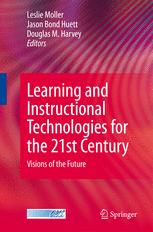

Most ebook files are in PDF format, so you can easily read them using various software such as Foxit Reader or directly on the Google Chrome browser.
Some ebook files are released by publishers in other formats such as .awz, .mobi, .epub, .fb2, etc. You may need to install specific software to read these formats on mobile/PC, such as Calibre.
Please read the tutorial at this link: https://ebookbell.com/faq
We offer FREE conversion to the popular formats you request; however, this may take some time. Therefore, right after payment, please email us, and we will try to provide the service as quickly as possible.
For some exceptional file formats or broken links (if any), please refrain from opening any disputes. Instead, email us first, and we will try to assist within a maximum of 6 hours.
EbookBell Team

5.0
78 reviewsLearning and Instructional Technologies for the 21st Century gathers research which identify models and approaches to improve learning through the inclusion of technology. These papers, from leading researchers and thinkers in instructional technology, begin by refuting the idea that education can be improved through more or better technology. Instead, the contributors emphasize specific, research-based ideas, which re-evaluate learning, reorganize schools, redirect technology, and provide instruction.
Acknowledging the critical role of technology, these contributions explore technology's main advantage--its ability to enable advanced learning designs and emerging paradigms as well as to evolve learning interactions. While each paper explores a specific aspect of the role of technology, the collection shares this common theme. Without sufficient consideration to the process of learning and its many facets, technological availability alone will not provide a sustained impact on the educational process.
Originating from the first AECT Research Symposium, Learning and Instructional Technologies for the 21st Century will be of interest to researchers and practitioners alike.